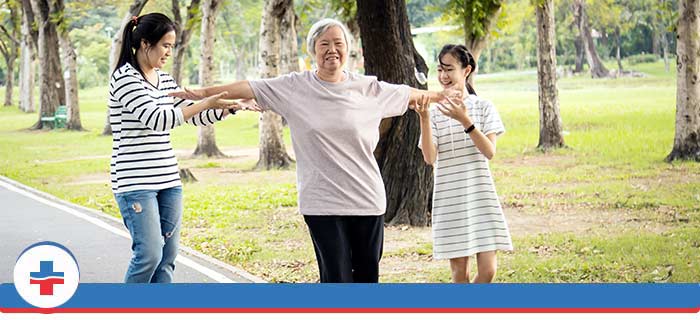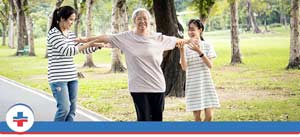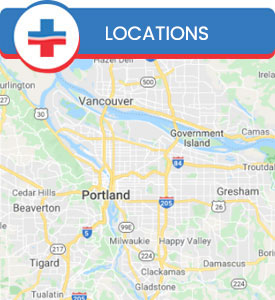What Are the Best Strategies for Fall Prevention and Treatment?
At Columbia Clinic Urgent Care, we specialize in providing tailored treatment for falls. We recognize the challenges and concerns that come with experiencing a fall, and our team is here to offer compassionate care and support to help you through it. Whether you’re recovering from a recent fall or looking for preventive measures, consult with our medical professionals at Columbia Clinic Urgent Care to receive the personalized attention you need to regain your stability and confidence. For more information, contact us or book an appointment online. We have convenient locations to serve you at Tibbetts St Portland, Stark Street Portland, and Tigard, OR. We also accept walk-ins.


Table of Contents:
What are the types of falls?
How do you know if a fall is serious?
What are the physical effects of a fall?
What is the medical treatment for a fall?
The three main types of falls are:
• Accidental falls – Slips, trips, and missteps are all categorized as accidental falls. These falls often occur at home, outdoors, and in the workplace, as environmental factors like clutter, uneven surfaces, and weather conditions cause them.
• Anticipated falls – These types of falls affect people who are diagnosed with a medical condition that increases their likelihood of falling, such as a neurological disorder, a cardiovascular disorder, or mobility issues.
• Unanticipated falls – This category of falls affects people who are considered low-risk but have experienced a medical emergency, such as a stroke, seizure, or heart attack.
Sometimes, falls are minor and do not require medical evaluation. However, if a fall is significant or you notice any of the following warning signs, you should receive immediate medical attention:
• Visual deformity – Any swelling, abnormality, or deformity in the injured area indicates an injury, such as a fracture or dislocation. You should visit a doctor to assess the extent of the damage.
• Severe pain – Intense or persistent pain in any part of the body, particularly the head, neck, back, or extremities, could indicate a fracture, sprain, or other injury.
• Loss of consciousness – If you lose consciousness after your fall, even for just a moment, you may have a head injury. This means the fall was serious, and you should be evaluated by a medical professional promptly.
• Other head injury symptoms – In addition to loss of consciousness, symptoms such as nausea, vomiting, dizziness, confusion, and vision changes are also warning signs of a head injury.
• Tingling or numbness – Tingling, numbness, weakness, or loss of sensation in any part of the body, especially in the arms or legs, can indicate nerve damage or spinal cord injury. It’s important to seek medical attention promptly, as these injuries are serious.
After a fall, it’s best to err on the side of caution and visit a doctor to ensure all your injuries are taken care of. If any of the symptoms listed above are present, you should seek medical attention and treatment right once.
Not all falls cause injuries, but some do. According to the CDC, about 20% of falls lead to serious injuries, such as a fractured bone or a head injury. These injuries can limit mobility and make it challenging to complete everyday activities.
Some of the most common injuries caused by falls are wrist, ankle, and hip fractures, as well as head injuries. In some cases, even when a fall doesn’t lead to an injury, the person develops a fear of falling in the future. This psychological effect can cause people to avoid certain activities and become less active, which makes them more prone to falling due to weaker muscles.
The treatment the doctor will recommend for you after your fall depends on the severity of the injuries you sustained. In the situation of minor injuries, first aid is administered to address lacerations, bruises, and swelling. However, if you’ve sustained a fracture, dislocation, or other musculoskeletal concern, doctors may use splinting or casting to stabilize the injury.
If the fall may have caused a head injury, physicians can provide a neurological assessment and may order a CT or MRI to monitor for signs of concussion or bleeding. For painful injuries, doctors may recommend over-the-counter pain relievers or prescribe pain medication in severe cases.
Physical therapy is often recommended to promote proper healing after a fall as well as to prevent the injuries from affecting mobility in the future. In addition, for people who are experiencing difficulty with daily activities due to fall-related injuries, occupational therapy can be incorporated into the treatment plan.
There are many treatments available for those who have sustained a serious fall. Your medical treatment will be personalized according to your unique need to ensure that you heal as quickly as possible.
At Columbia Clinic Urgent Care, we believe in empowering you to enjoy life to the fullest without fear of falling. Our experienced team is committed to assisting you every step of the way, providing advice and treatment to help you avoid future falls and keep your independence. Set up a consultation at Columbia Clinic Urgent Care today to take charge of your overall wellness and health. We can collaborate to build a more secure, better future for you. For more information, contact us or book an appointment online. We serve patients from Tibbetts St Portland, Milwaukie OR, Oak Grove OR, Stark Street Portland, Fairview OR, Happy Valley OR, Gladstone OR, Cedar Mill OR, Tibbetts Street Portland OR, West Linn OR, Aloha OR, Tigard OR, Lake Oswego OR, Tualatin OR, Oregon City OR.


